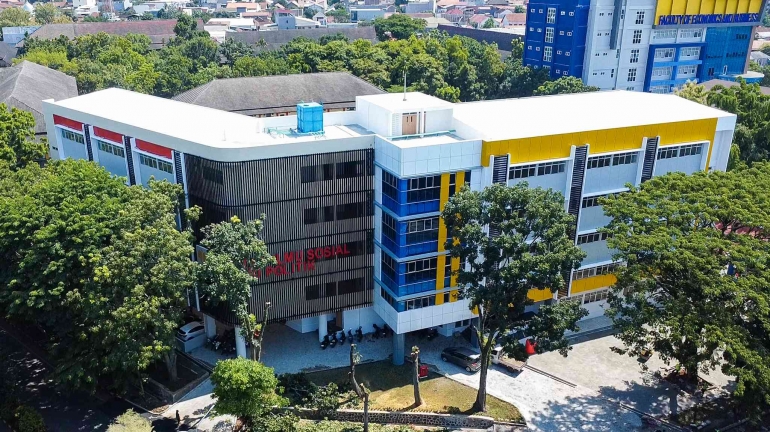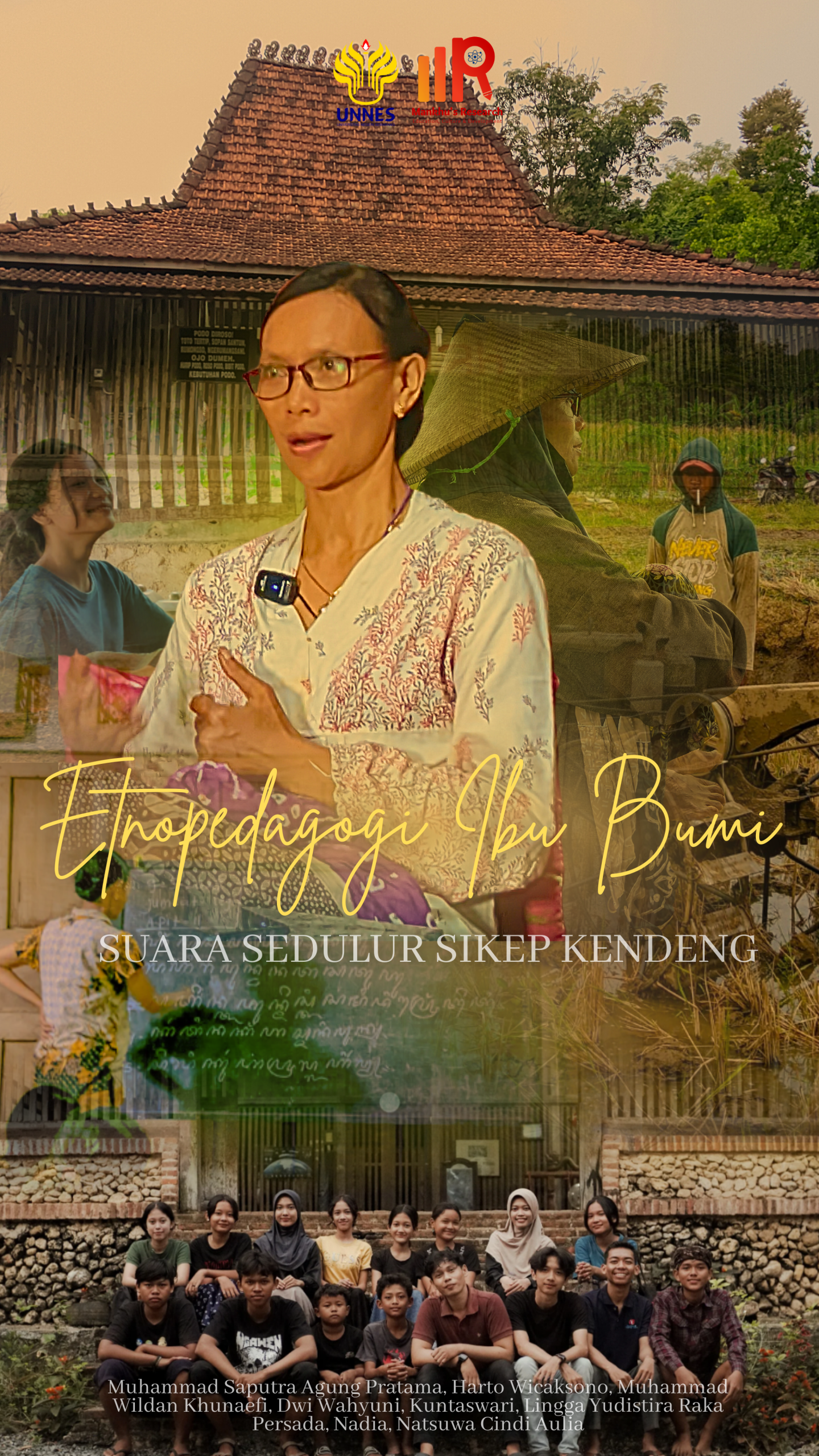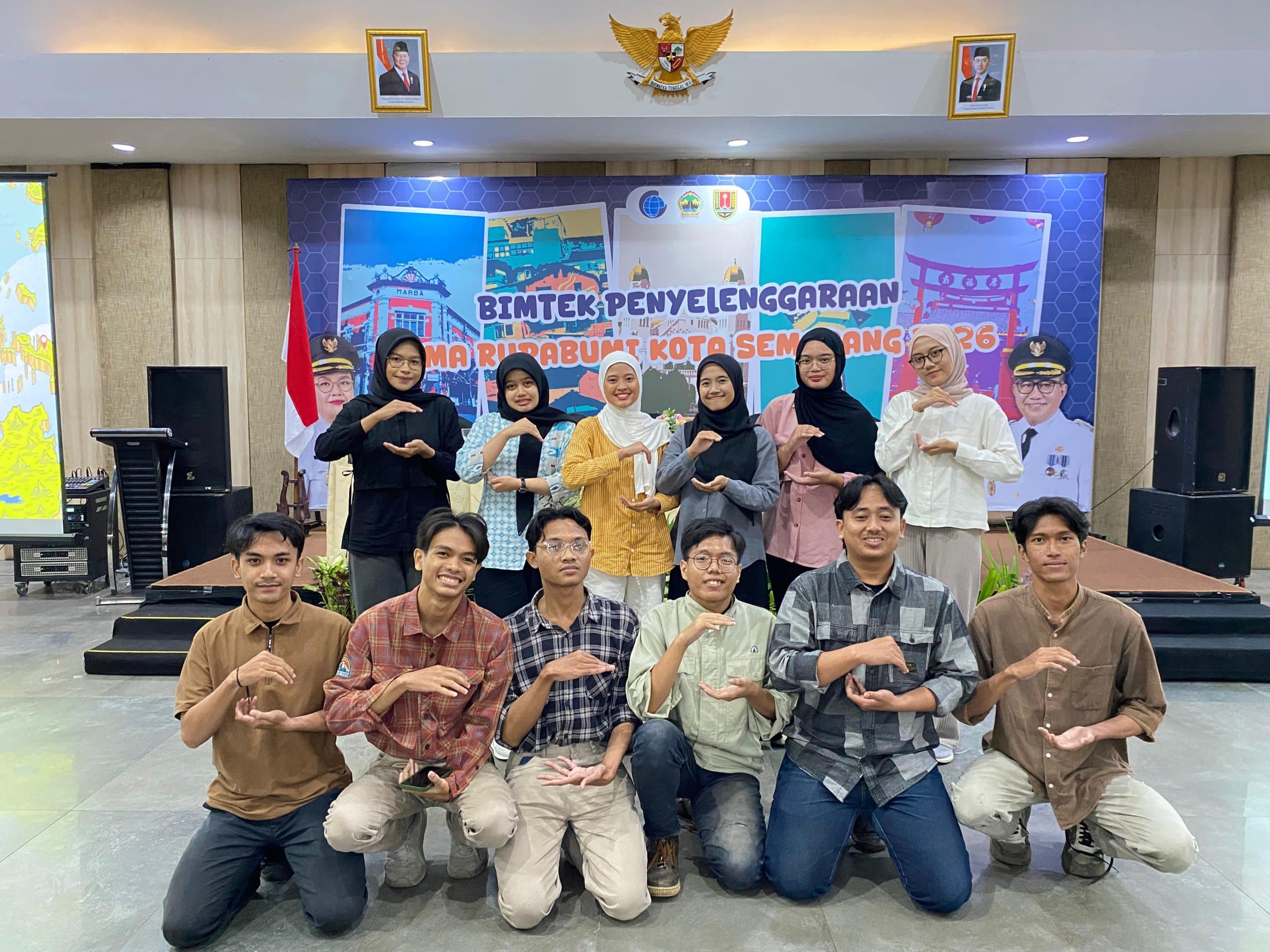Semarang, FIS UNNES, 2021. Fenomena pendigitalan naskah-naskah nusantara oleh lembaga-lembaga internasional dengan pendanaan yang besar harus dikritisisi, terutama dalam hal kemanfaatan dan kemudharatan bagi Bangsa Indonesia sebagai pemilik naskah asli yang digitalkan.
Hal tersebut disampaikan oleh Dr. Surya Suryadi, dari Universiteit Leiden melalui naskahnya yang berjudul “TEKNOLOGI DIGITAL DAN MASA DEPAN ILMU SOSIAL HUMANIORA: Sebuah Refleksi tentang fenomena dan efek pendigitalan naskah (Nusantara)” pada 6th International Conference on Education and Social Sciences (ICESS) 2021 yang diselenggarakan oleh FIS UNNES (Sabtu, 10 April 2021).
Suryadi menceritakan bahwa naskah-naskah yang digitalisasikan tersebut merupakan naskah-naskah yang menarik untuk disimpan secara digital. Ada dua kategori naskah Melayu-Nusantara yang didigitalisasikan antara lain: 1) Naskah-naskah yang masih tersebar dalam masyarakat lokal, baik berupa koleksi peribadi ataupun milik lembaga-lembaga pendidikan Islam seperti pesantren di Jawa, surau di Minangkabau, dayah di Aceh dan lain sebagainya, 2) Naskah-naskah yang sudah tersimpan di beberapa perpustakaan: di dalam dan luar negeri.
Di Indonesia proyek-proyek pendigitalisasian naskah-naskah Melayu-Nusantara antara lain: 1) proyek-proyek Pendigitalisasian naskah-naskah Jawa di FIB Universitas Indonesia (2000), 2) proyek-proyek C-DATS-TUFS, Jepang (Palembang, Padang, Aceh) (2003), 3) proyek-proyek Leipzig University, Jerman (Projekt zur bewahrung der handschriften von Acheh), 2007 dan Proyek pendigitalisasian naskah-naskah Keraton Yogyakarta, Surakarta dan Cirebon, 2010), 4) Projek-projek Endangered Archives Programme, British Library, mulai 2006, dan 5) Projek DREAMSEA.
Lembaga-lembaga internasional yang terlibat dalam pendigitalan naskah-naskah Nusantara di Indonesia diantaranya: 1) proyek-proyek di bawah koordinasi C-DATS TUFS (Jepang), mulai 2003, 2) Proyek-proyek di bawah koordinasi Leipzig University (Jerman), mulai 2007, 3) Proyek-proyek di bawah koordinasi Endangered Archives Programme, British Library (England), mulai 2006, dan 4) Proyek Dreamsea (Digital Repository of Endangered and Affected Manuscripts in Southeast Asia), 2018.
Proyek pendigitalan naskah-naskah nusantara dilakukan melalui beberapa tahapan, diantaranya: 1) Pemberi grant (British Library) sangat rigid. Proposal akan diperiksa dengan sangat teliti. Post-post yang bagi mereka dianggap tidak masuk akal, tapi bagi kita penting, sering dihilangkan atau dipotong. Alokasi dana untuk pemeliharaan naskah sendiri dan apresiasi finansial kepada pemiliknya rendah, 2) Principal applicant sendiri tidak digaji; yang digaji justru pekerja di lapangan, 3) Urusan administrasi: perizinan di tingkat nasional (di Indonesia: Arsip Nasional) dan di tingkat daerah tidak selalu mudah, 4) Grant dicairkan/diberikan dalam dua tahap. Grant tahap kedua dikirimkan apabila kerja pendigitalan di lapangan dianggap mengalami progress sesuai dengan yang sudah direncanakan, 5) Sering terjadi kesalahfahaman antara principal applicant (apalagi kalau principal applicant-nya orang Eropa) dengan eksekutor (asisten/pekerja) di lapangan, khususnya dalam soal pengelolaan/pembelajaan dana/uang, 6) Pendekatan antara principal applicant dan para asisten lapangannya dengan pemilik naskah memerlukan waktu yang panjang. Ini bersifat pendekatan personal dan bagaimana menciptakan trust (rasa saling percaya) antara kedua belah pihak. Kadang-kadang masih terjadi kecurigaan: pemilik naskah merasa tidak diberi uang yang cukup. Mereka merasa bahwa orang-orang yang datang mendigitalkan naskah-naskah milik mereka punya banyak uang.
Proses pendigitalan naskah-naskah nusantara yang dibiayai oleh internasional bagi Surya Suryadi tentu menimbulkan beberapa pertanyaan, diantaranya: 1) Apakah pendigitalan ribuan naskah Melayu-Nusantara dianggap lebih penting dan urgent dibandingkan penyelamatan dan restorasi fisik naskah-naskah itu sendiri?, 2) Apakah pendigitalan naskah-naskah (Melayu-Nusantara) dapat melemahkan atau mengubah esensi dan orientasi ilmu filologi (khususnya kodikologi) Melayu (juga bagian dunia lain) atau, sebaliknya, justru memperkuatnya?, 3) Apakah pendigitalan naskah-naskah (Melayu-Nusantara) akan dapat lebih mempopulerkan ilmu/studi filologi dan menarik generasi muda?, 4) Apakah pendigitalan naskah-naskah Melayu-Nusantara dapat menarik bidang-bidang ilmu lain selain ilmu filologi untuk memanfaatkan informasi historis dan kebudayaan yang terkandung di dalam naskah-naskah tersebut?
Apakah pendigitalan naskah-naskah Melayu-Nusantara memerlukan koordinasi antaranegara, antara institusi, and antarapeneliti (scholars) untuk menghindari pekerjaan mubazir (terjadinya mendigitalkan koleksi naskah yang sama berkali-kali), 6) Apa dampak positif dan negatif dari pendigitalan naskah-naskah Melayu-Nusantara oleh institusi-institusi internasional bagi bangsa Indonesia sendiri?, 7) Apakah tidak lebih baik apabila pendigitalan naskah-naskah Melayu-Nusantara dilakukan oleh pihak kita sendiri dan, hasilnya disimpan di perpustakaan-perpustakaan di negara kita sendiri?, 8) Adakah pemerintah, institusi-institusi swasta dan pribadi di Indonesia dan Nusantara pada umumnya berminat mendukung (moral, finansial) upaya-upaya pendigitalan naskah-naskah Melayu-Nusantara, sebagaimana yang dilakukan oleh Arcadia institusi-institusi internasional lainnya?
Menurut Suryadi, pertanyaan-pertanyaan tersebut merupakan bahan diskusi yang menarik, dan proses pendigitalan dilihat sebagai upaya mengembangkan ilmu pengetahuan, karena faktanya masih terjadi penyucian terhadap naskah-naskah berbahasa arab sehingga pada kelompok masyarakat tertentu lebih memilih naskah-naskah tersebut tersimpan dan dibiarkan sampai membusuk daripada dikaji kembali.




